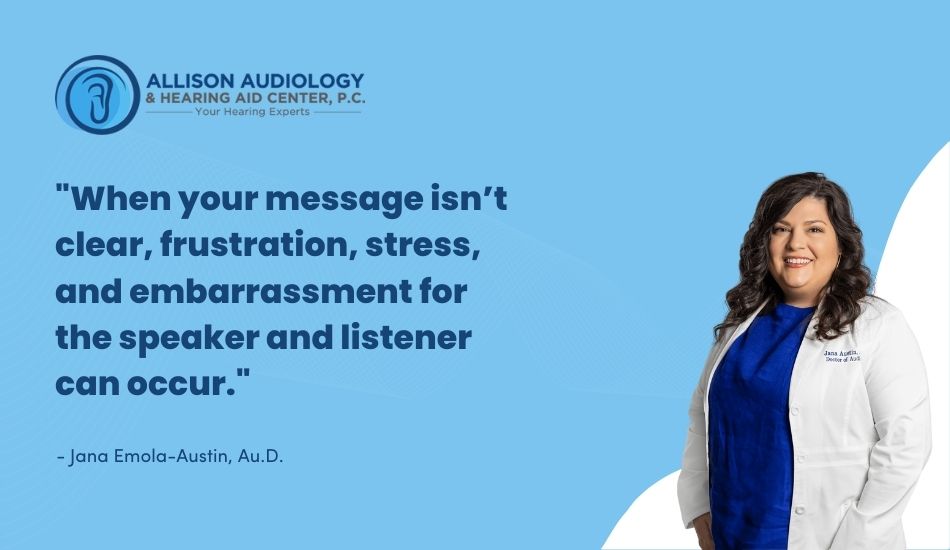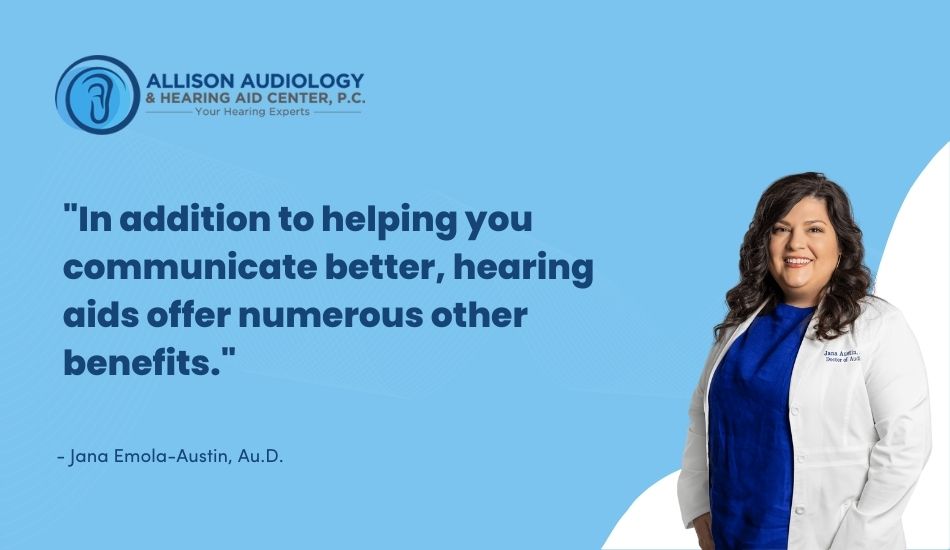When your message isn’t clear, frustration, stress, and embarrassment for the speaker and listener can occur.
To keep your relationships strong and vibrant, below are several communication strategies. With these tips, everyone can communicate more effectively – hearing loss or not.
Be Mindful of Distance
Talking to someone who’s in a different room isn’t easy. Distance muddles up one’s speech. Avoid frustration and uncomfortable confrontations by following these tips:
- Ensure both people are in the same room when speaking.
- If someone speaks to you from another room, ask them to stop. Find them and explain what’s happened, so they’re aware of the communication breakdown. Perhaps you were in the living room and they were in the bedroom. Then they went into the closet, moving even further away. This made it even more difficult for you to hear them.
- Next, ask them to repeat what they’ve said or asked.
- Repeat what you heard. If you’ve only heard parts of their question, say those parts and ask them to fill in the blanks, so they don’t need to repeat everything.
Lower Background Noise
Whether a family member has the TV on or they’re playing a game on their tablet, music and sounds can make conversing difficult. For effective communication:
- Get the other person’s attention and ensure the TV’s or tablet’s volume is reduced to the minimum level before talking.
- Sometimes background noises like at a restaurant can’t be controlled. Try to socialize when crowds are minimal, so you can enjoy conversations in a quieter environment.
Use Visual Cues
Visual cues help everyone. It’s always helpful to see someone’s lips, eyes, and facial expressions when they’re talking, and it helps with enunciation.
Currently, everyone is wearing face masks in public. These hide crucial visual cues. To keep communication flowing:
- Wear a mask with a clear window to make facial expressions visible and lip reading possible.
- When communicating without a mask, ensure you can see each other’s face.
- Keep your hands away from your face when speaking, so your eyes, lips, and overall expression aren’t hidden.
Speak at a comfortable pace
Speak too quickly and your listener could become lost and confused if they can’t keep up with you. Instead:
- Talk at a normal pace, so everyone can process your words.
- Speak with punctuation. When we write, we use commas and periods. When talking, use the same punctuation to ensure that you pause when necessary.
- Our ears pick up sound, but our brains process it. Slowing down speech allows conversations to make sense.
Don’t shout
Many people think that shouting at those with a hearing loss will make them understand better, but it actually does the opposite. Voices become distorted and sound unnatural.
Instead, just speak a bit louder than usual. This way, someone with a hearing loss can understand you without distorting the signal.
Use Topic Starters
By letting someone with a hearing loss know the topic, it helps them to understand you better and need fewer clarifications. People with a hearing loss can struggle to understand conversations if the topics change quickly. Be sure to:
- Use topic starters such as, “About dinner, which restaurant did you want to order from tonight?” or, “Speaking of baseball, did you hear about the trade the Dodgers just made?”
- Give notice that you want to change topics. It can help the other person understand the conversation better.
- Communication habits can be tricky to break. For overall success, share these tips with your family and friends. By working together, you can improve your communication and decrease the frustration and confusion.
At Allison Audiology, we’re here to help you with any hearing concerns you have. Simply call us at either our Houston offices and we’ll be happy to assist you.




